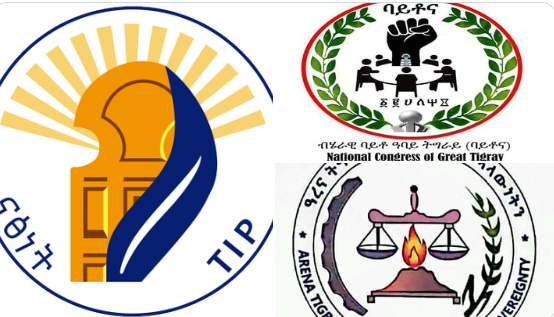Mekelle፡Telaviv, Nairobi, Pretoria, London, (Tigray Herald)
TPLF at War with Itself: Power Above People, and the Clock is Ticking
By Tekie Hagos
The Tigray People’s Liberation Front (TPLF) stands at the edge of political irrelevance—not because of external enemies, but due to its own internal contradictions, power obsession, and failure to adapt to the post-war political landscape.
A once-venerated movement that led a decades-long struggle is now on a self-destructive path, prioritizing its survival as a party over the survival of the people it claims to represent.
After the Pretoria Agreement brought a fragile ceasefire, the TPLF was granted a six-month grace period by the Federal Election Board of Ethiopia to cease political activities, reconstitute itself legally, and hold a party congress that meets federal requirements. That grace period is now days away from expiring. Yet, instead of using this time to reform, listen to the people, and renew its legitimacy, TPLF has focused on internal power plays and political dominance.
This looming deadline could trigger a dangerous new phase. The party’s failure to comply may either lead to its legal disqualification, reigniting tensions with the federal government, or possibly result in another extension—one that only prolongs its agony, deepens internal fractures, and accelerates the erosion of its credibility. The result? A party in disarray, weakened from within, and disconnected from the urgent needs of the people.
Even more disturbing is the perception that TPLF is open to aligning with Eritrean dictator Isaias Afewerki, whose regime played a central role in the genocidal war on Tigray. Such an alignment, whether tactical or real, would represent the ultimate betrayal—both to the martyrs of the war and to every Tigrayan who continues to suffer in displacement and trauma.
While the TPLF continues to collaborate with the Tigray Defense Forces (TDF) in maintaining regional security, this alone cannot mask the party’s deeper failures. Instead of championing the safe return of Internally Displaced Persons (IDPs), leading reconciliation, and pushing for the full implementation of the Pretoria Agreement, it has distracted itself and the public with self-preservation and resource control. Many Tigrayans now perceive the TPLF not as a vanguard force, but as an elite structure exploiting the region’s suffering for the benefit of party loyalists and die-hard supporters.
The suppression of dissent, branding of fellow Tegaru as enemies, and obstruction of inclusive dialogue only widen the gap between the leadership and the people. In choosing fear over reform, TPLF is scripting its own downfall.
This is its eleventh hour.
Without urgent, courageous transformation—beginning with a credible, inclusive congress and a total rethinking of its role—TPLF risks not just losing power, but also forfeiting its historical legacy. If it continues down this path, history may record that TPLF fell not at the hands of its enemies, but by the weight of its own failures.
Eastern Africa’s challenges are deeply interconnected; instability in one area often cascades across borders. The TPLF’s actions—particularly its role in reigniting conflict in Tigray—pose a serious threat to regional stability and risk:
• Escalating armed conflict and worsening humanitarian crises;
• Intensifying refugee flows and internal displacement, placing immense strain on neighboring countries and international support systems;
• Creating openings for extremist groups such as Al-Shabaab and ISIS affiliates to exploit weakened governance and security vacuums;
• Undermining peacekeeping efforts, disrupting humanitarian operations, and derailing regional development initiatives.Given the magnitude of these threats, it is imperative that regional institutions such as the African Union and IGAD, alongside global partners, act with urgency and coordination. This must include sustained diplomatic engagement, credible accountability mechanisms, and strong support for inclusive, locally driven political solutions that foster lasting peace.
Safeguarding Eastern Africa’s future is not only a regional priority—it is a global responsibility. The consequences of inaction will be felt far beyond the Horn of Africa.
The TPLF is no longer merely a localized threat confined to Tigray. It has evolved into a destabilizing force across Eastern Africa and must be recognized and labeled as such by the international community—particularly by institutions committed to peace, human rights, and regional stability.
Furthermore, the people of Tigray must not be used as tools in the pursuit of this destructive agenda. The alliance between the TPLF and Eritrea’s authoritarian regime, Shaebia, is a dangerous manipulation of communities for political and military gain.
Tigrayans—like all peace-loving people around the world—deserve the opportunity to thrive in peace, dignity, and prosperity. They must be freed from the repeated cycles of war and sacrifice demanded by a rogue organization seeking to preserve its relevance through chaos.




